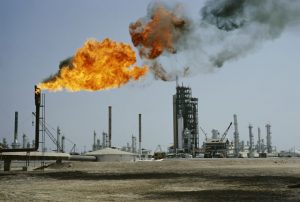Fossil fuel subsidies hits all-time high in 2022, IEA reports
March 1, 2023684 views0 comments
By Innocent Obasi
The global fossil fuel consumption subsidies doubled from the previous year figure to an all-time high of $1 trillion, driven by the energy crisis witnessed during the year, according to the International Energy Agency (IAE).
IEA in its latest report titled “Fossil Fuels Consumption Subsidies 2022”, said that subsidies for natural gas and electricity consumption more than doubled compared with 2021, while oil subsidies rose by around 85 per cent.
Read Also:
“The Glasgow Climate Pact emphasized that phasing out fossil fuel subsidies is a fundamental step towards a successful clean energy transition. However, today’s global energy crisis has also underscored some of the political challenges of doing so.
“The subsidies are mainly concentrated in emerging markets and developing economies, and more than half were in fossil-fuel exporting countries,” the report said.
In addition, the energy agency tracked more than $500 billion in extra spending to reduce energy bills in 2022, mainly in advanced economies, with around $350 billion of this in Europe. It stated that the spending was not necessarily captured in its methodology as a fossil fuel consumption subsidy because average end-user prices are still sufficiently high to cover the value of the market fuel in question.
On energy subsidy reform from today’s energy crisis, IEA highlighted three important lessons on the prospects for orderly and people-centred transitions. Firstly, it stated that fossil fuel prices are not the best way to drive clean energy transitions. Secondly, it noted that high fossil prices hit the poor hardest, but subsidies are rarely well-targeted to protect vulnerable groups and tend to benefit better-off segments of the population. Thirdly, it said that it is better to spend on structural changes than on emergency relief.
“Resources are best deployed in promoting changes that provide lasting protection against volatile fuel prices. This means anchoring market-based prices in a broader suite of policies and measures that enable cleaner choices by households and industries. This should make high-efficiency and low-emissions equipment and services readily available, and help poorer consumers to manage the upfront costs of these investments,” IEA said.

